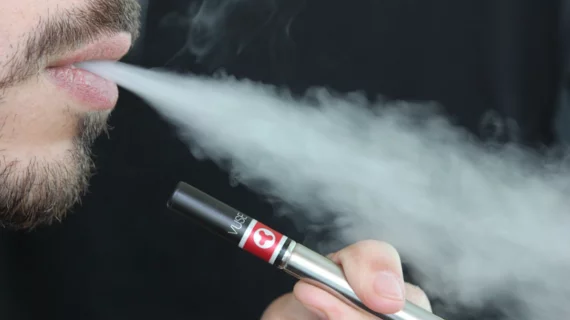FDA, DOJ go after e-cigarette companies for breaking the law
E-cigarette manufacturers are under fire from the Department of Justice (DOJ), which is seeking a permanent injunction in federal district courts against six manufacturers.
The DOJ is seeking the injunction on behalf of the Food and Drug Administration (FDA) after the agency already barred popular e-cigarette company Juul from marketing and selling and distributing its products earlier this year. The latest injunction from the DOJ would require the companies to stop manufacturing, selling, and distributing their e-cigarettes, as well as obtain marketing authorization from the FDA before marketing their products.
The FDA and the DOJ targeted six companies in U.S. District courts, including:
- Morin Enterprises Inc. doing business as E-Cig Crib in the District of Minnesota
- Soul Vapor LLC in the Southern District of West Virginia
- Super Vape’z LLC in the Western District of Washington
- Vapor Craft LLC in the Middle District of Georgia
- Lucky’s Convenience & Tobacco LLC doing business as Lucky’s Vape & Smoke Shop in the District of Kansas
- Seditious Vapours LLC doing business as Butt Out in the District of Arizona
According to the FDA, the defendants have failed to submit premarket applications for their e-cigarettes and have continued to illegally manufacture, sell and distribute their products, even after being warned by the FDA they were breaking the law. Specifically, the companies violated the Federal Food, Drug and Cosmetic (FD&C) Act’s premarket review requirements for new tobacco products, according to the FDA.
“Today’s enforcement actions represent a significant step for the FDA in preventing tobacco product manufacturers from violating the law,” Brian King, PhD, MPH, director of the FDA’s Center for Tobacco Products, said in a statement. “We will not stand by as manufacturers repeatedly break the law, especially after being afforded multiple opportunities to comply.”
With the injunctions filed, the companies can agree to consent degrees to stop manufacturing, selling or distributing any new tobacco products unless and until certain prerequisites are met. This includes receiving authorization from the FDA to market the products, FDA inspections of facilities to determine compliance and notification from the FDA that the defendants are in compliance. If the companies don’t accept consent decrees, the government can enforce injunctions.
“These cases are an important step in stopping the illegal sale of unauthorized electronic nicotine delivery system products,” Principal Deputy Assistant Attorney General Brian M. Boynton, head of the Justice Department’s Civil Division, said in a statement. “The Department of Justice will continue to work closely with FDA to stop the distribution of illegal, unauthorized tobacco products.”
Between January 2021 through Sept. 9, 2022, the FDA issued nearly 300 warning letters, to firms that collectively have more than 17 million e-cigarettes listed with the agency, for failure to submit a timely premarket application, the FDA said, noting its first step is to issue a written letter in an attempt to receive voluntary compliance with the law. After receiving warnings, the majority of companies comply and remove their products from the market.

